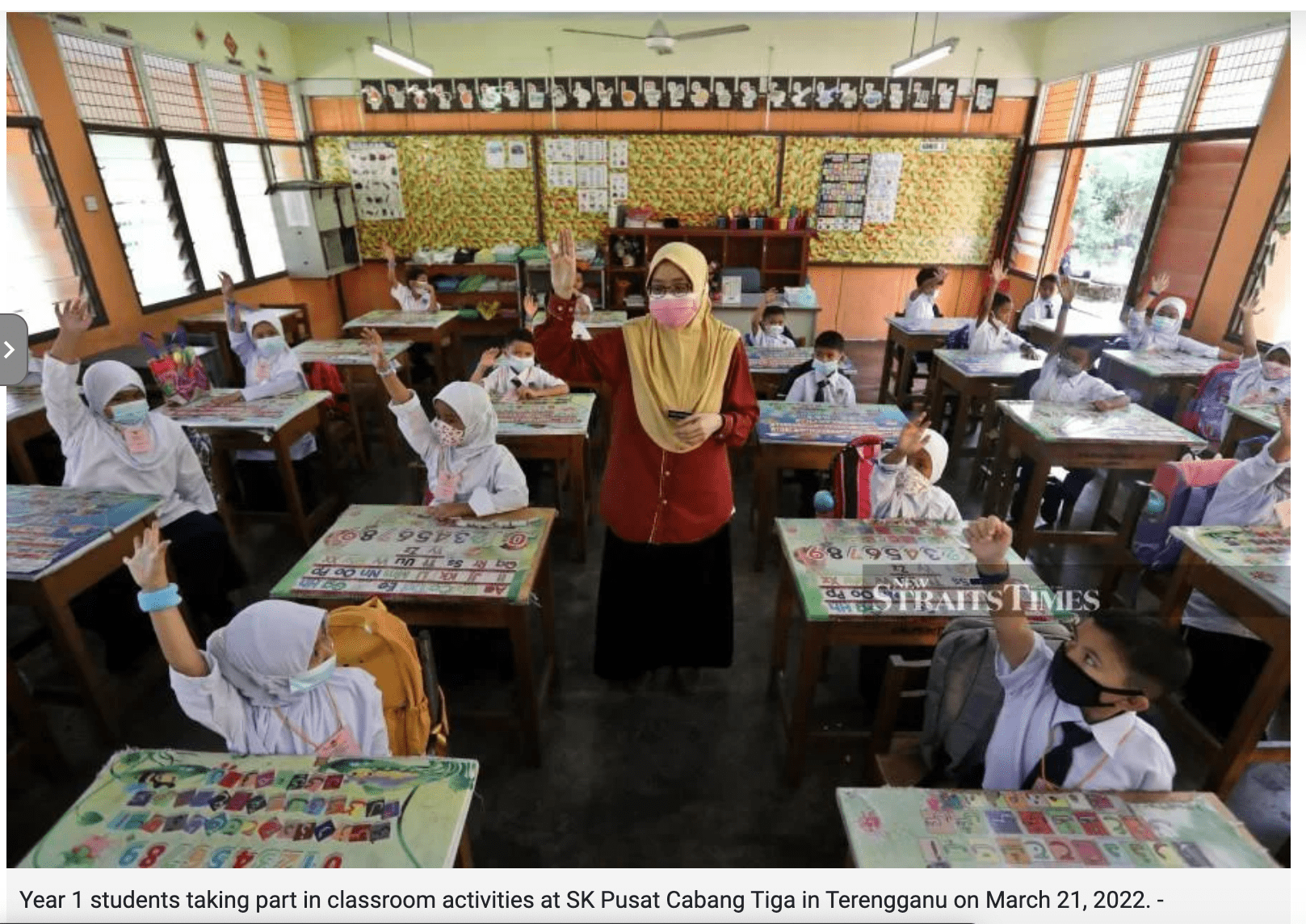As Malaysians embrace the hashtag #kitajagakita during the Covid-19 pandemic, it is only right for society to pay serious attention to the plight of school dropouts.
This is a pressing issue for educators and policymakers to resolve as the country cannot afford to have a generation who have missed out on their education.

Statistics from the Education Ministry reveal that 21,316 students had dropped out of school between March 2020 and July last year.
It was reported that between January and July 2021 alone, 10,015 students had stopped attending online classes as schools were closed.
Although this figure is miniscule compared with the 5,038,318 students and pupils in the whole schooling system, the government and society must pull out all the stops in making sure that no child is left behind, if we really want to live up to our aspirations as a caring nation.
Besides the wasted opportunity and personal loss to the students, not completing their tertiary education may adversely impact the country's efforts to produce a knowledgeable workforce and maintain its competitiveness.
The Education Ministry's Manual for Managing Student Dropout Prevention and Intervention for Highlighting Self-Excellence, also known as SUDI 2.0, defines dropouts as those who never received a formal education; not part of the education system because of critical illness, undergoing rehabilitation or have migrated out of the country; and, those who stopped schooling due to disciplinary action, poor academic performance and socio-economic reasons.
To prevent more dropouts among secondary school students, an inter-disciplinary group of academics in Universiti Utara Malaysia organised a series of discussions with students to better understand the situation.
The team, headed by Professor Dr Rosna Awang Hashim who is also the chair of Education and Human Development Cluster in the Academy of Professors Malaysia, aims to find ways to make students aware that knowledge is essential in securing a better future.
In our understanding, it was mostly the students who decided to prematurely leave school for a plethora of reasons. Some may even be short-sighted and driven by a loss of interest in studying — no thanks to the pandemic.
The researchers encountered excuses, such as "I don't feel like going to school", "I'm not sure," and "I'm not interested because I'm bad at studying".
Probed further, most said they were happy earning money part-time, while others were facing difficulties in coping with their study workload. Some did like to go to school, despite having a favourite subject or teacher.
"I like the English subject, the teacher is strict but kind," one student said.
"I go to school to pass my exams," added another.
"I like meeting my friends," one more said.
These students who were interviewed had not completely dropped out of school, but the researchers feared that they would soon quit if nobody took an interest in their welfare and academic development.
Thus, it is all the more important to motivate them to stay in school.
Rosna acknowledges the support of the Kedah government and Yayasan Sime Darby, and mentions that this requires a long-term effort with strong societal support.
Parents and teachers must be encouraged to take an interest in the children's studies.
Ever since the pandemic began the government has been trying to adapt the education system, such as expanding Internet coverage to facilitate online learning, providing computers to poor students and initiating the Covid-19 National Immunisation Programme for adolescents and children so that they can safely return to school.
Just as charity begins at home, prioritising education must also start from the parents' perspective. The idea of leaving it to the children to decide their future because they are old enough may not be wise anymore.
It is only when we realise the severity of the problem and take action to prevent the dropout rate from rising, that we can rest assured that the future of our nation is on the right path and in good hands.
Dr Norhafezah is dean of the Awang Had Salleh Graduate School, Universiti Utara Malaysia (UUM). Dr Minah is a former director of UUM Press
The views expressed in this article are the author's own and do not necessarily reflect those of the New Straits Times
Source : New Straits Times


